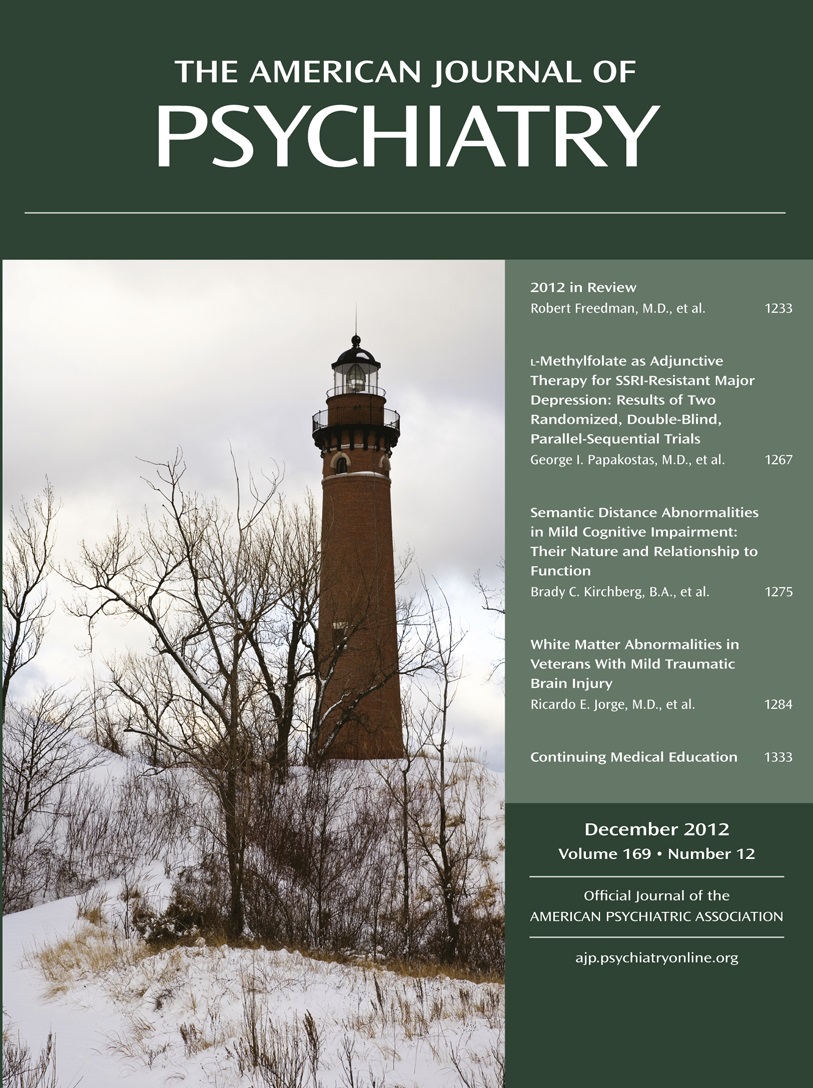To the Editor: We conducted a naturalistic longitudinal study that prospectively assessed adolescents with bipolar disorder after their first manic episode. Each participant’s legal guardian was given a complete description of the study, and they provided written informed consent; adolescents also provided written assent. The study was approved by the institutional review boards of the University of Cincinnati and Cincinnati Children’s Hospital Medical Center.
In our study, 83% (19/23) of the adolescent girls (ages 15–19 years) were sexually active, and 30% (7/23) experienced an unplanned pregnancy at least once during the follow-up period (median weeks in study=105; median weeks to first pregnancy=59) while they were still under the age of 20. Additionally, six of eight pregnancies (one of the seven girls became pregnant twice as a teen) resulted in live births. To put this 26% (6/23) birth rate in context, local birth rates ranged from 0.46%–0.54% in the 15- to 19-year-old age group during the years over which the data were collected (1999–2006) (
1). The high rate of teen pregnancy we observed is consistent with findings from a larger study (N=249) of bipolar adolescents, which reported a 5% 12-month prevalence of pregnancy, with higher rates in girls with substance use disorders (20%) than in those without (1%) (
2).
Teens with bipolar disorder require treatment that proactively addresses the risks of unprotected sex as well as factors that may influence decisions about sexual behavior, such as substance use and psychiatric symptoms. Notably, 57% (4/7) of the pregnant teens in our study also had a substance use disorder, and 83% (5/6 with complete data) were experiencing at least subthreshold affective episodes at the time of conception, with two girls (33%) meeting full criteria for mania (N=1) or depression (N=1).
The high rates of unplanned pregnancies we observed also suggest that teratogenicity should be considered when prescribing psychotropic medications to adolescent girls, as exposure could harm a developing fetus during a critical period of development (i.e., the first trimester), before the pregnancy is discovered. In one-half (N=4) of the pregnancies in our sample, psychotropic medications were being taken around the time of conception. In each case, the medications were discontinued at varying points during the first trimester: almost immediately (N=1), after 1 month (N=2), and after 3 months (N=1). Three of the four pregnancies resulted in live births, with no gross anomalies noted in the newborns. The other pregnancy, in which medication was discontinued almost immediately, resulted in a spontaneous abortion after 2 months. Further study of pregnancy outcomes in these adolescents is needed to understand the risks associated with prescribing teratogenic medications to at-risk teenage girls with bipolar disorder.

